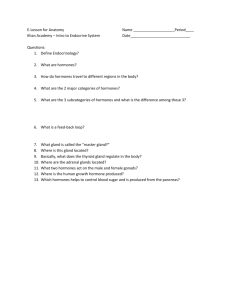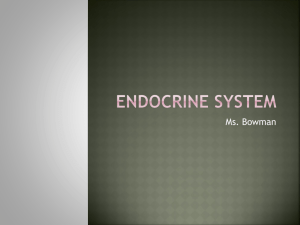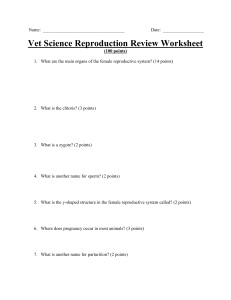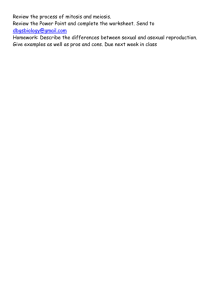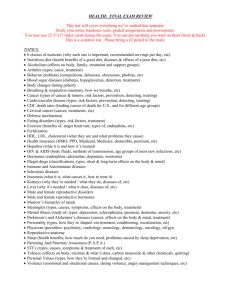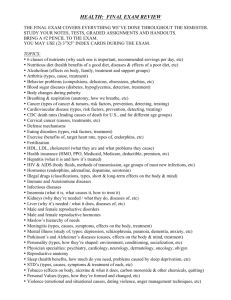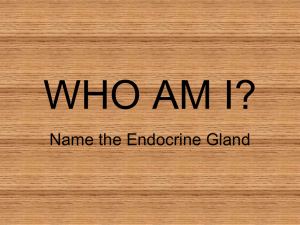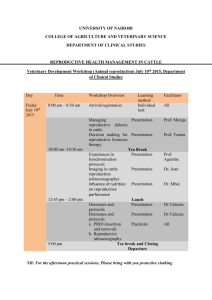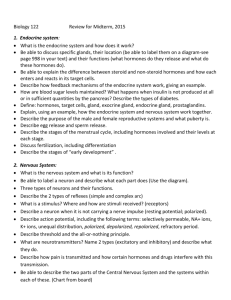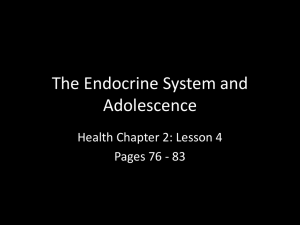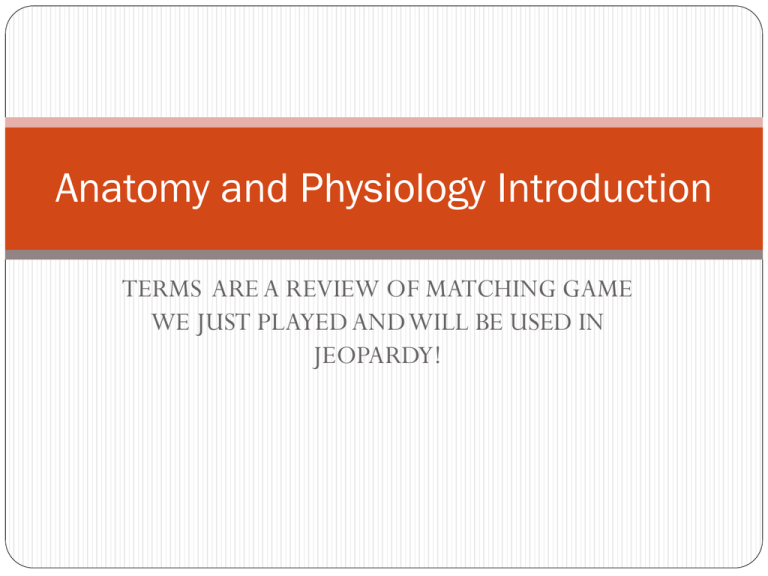
Anatomy and Physiology Introduction
TERMS ARE A REVIEW OF MATCHING GAME
WE JUST PLAYED AND WILL BE USED IN
JEOPARDY!
Objective:
Identify terms related to Anatomy and Physiology.
Describe internal body systems of animals.
Compare internal body systems.
(TEA TEKS: Advanced Animal Science 130.7 (8) (B)
The Skeletal System
Framework of the body
Provides structural support for all other organ systems
A skeleton of the bovine species is on the next slide, this is
simply a review, don’t panic. We will learn each animal piece by
piece and individually.
Made of bones and connective tissues.
The Muscular System
Allows movement of internal structures, limbs and the body
as a whole.
Muscles are categorized three different ways:
Their function:
Skeletal, Visceral or Cardiac
How they are activated:
Voluntary or Involuntary
By their physiology:
Smooth, Striated or Unstriated
Once again, the following picture is just a preview.
The Reproductive System (female)
The vagina
Vulva
Cervix
Uterus
Fallopian tubes
Female hormones:
Estrogen and Progesterone
The Reproductive System (male)
Penis
Testicles
Two ducts which connect the testicles with the penis
Male hormones:
Testosterone
Androgen
The Digestive System
Breaks down various nutrients found in feeds into molecules that
can be used by the cells of the body.
In ALL animals this system is made of:
Mouth
Tongue
Pharynx
Esophagus
Stomach (In ruminants the stomach has 4 compartments: Omasum,
Abomasum, Rumen and Reticulum)
Small intestine
Large intestine
Anus
The Circulatory System
Responsible for:
Distributing blood throughout the body
Removing wastes
Immune responses to infections
Regulating temperatures
Major organs:
The heart
Veins
Capillaries
Arteries
Lymph vessels
Lymph glands
The Genito-Urinary System (Female)
Includes the reproductive system and the urinary system.
The vagina
Vulva
Cervix
Uterus
Fallopian tubes
Bladder
The Genito-Urinary System (Male)
Includes both the reproductive and urinary system
Penis
Bladder
The Respiratory System
Responsible for:
Providing oxygen to the blood
Noise created by the voice box
Excretion of waste gases.
Consists of:
Lungs
Nostrils
Nasal cavity
Pharynx
Larynx
trachea
The Nervous System
Functions:
Coordinating physical movement of the body
Responding to actions of the 5 senses
Composed of 2 major parts:
Central Nervous System
Includes: the brain and spinal cord
Peripheral Nervous System
Includes: nerves found in all other regions of the body
The Endocrine System
Network of glands that secrete hormones
Hormones provide chemical control of various functions of the
body
Includes:
Hypothalamus gland
Pituatary gland
Thyroid gland
Adrenal gland

